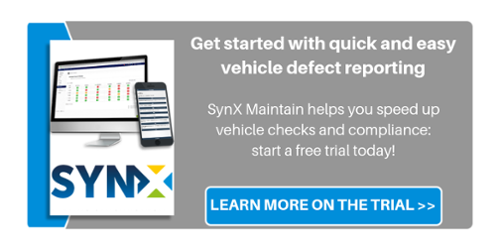
When it comes to fleets, we will never stop talking costs: naturally, they are always too high but they are still a necessary expenditure in order to develop commercial activity, and we are always looking for ways of managing those costs and doing things more wisely. Replacing vehicles is another one on the long list of costs which comes with its own set of challenges.
Vehicles shall be kept in fleets as long as they constitute a measurably reasonable expense. So when fuel and maintenance costs seem excessive for a vehicle, and age and mileage also suggest that a vehicle is probably not as efficient as it was some time ago, it is maybe time to start thinking about a replacement. But these indicators alone do not provide enough data alone to formulate a definite opinion on the matter; there should in fact be clear guidelines for replacement, ideally based on vehicle data obtained from the vehicle itself or from the fleet as a whole.
Replacement policies should detail conditions for disposal and replacement of vehicles in a way that should be widely understood within your organization. They cannot be drafted in isolation, but rather interconnected with fleet management budgets or financial policies and procurement strategies, as a piece in the entire jigsaw. The objective is not to incur excessive cost from mileage, maintenance or aging and to sell the vehicle at the best moment and price possible, to then use this advantage to acquire new assets. In order to guarantee that the remarketing process is carried out successfully, the vehicle needs to be roadworthy and in good condition, so it might need servicing or even have its functionality certified by a third party provider specialised in this type of service.
What then are some of the details companies need to consider when drafting a replacement policy for their fleet? We have outlined some of them, although we need to bear in mind that they are not all necessarily valid for your company or for every sector—as there is no one-size-fits-all approach in fleet management, or business in general—but are still worth checking if you are preparing your own replacement policy:
#1 – Fuel consumption— technology changes mean vehicles today consume less fuel than yesteryear. If your vehicle has been in service for a while, its technology might have been surpassed by a newer vehicle, or wear and tear could just be the cause for an inefficient performance from the point of view of fuel consumption. Emissions too are important, as they start to increase together with the intake of fuel needed for the vehicle to operate after a few years.
#2 – Maintenance expenses—for much the same reasons as fuel consumption: when the level of maintenance is no longer a reasonable expense and vehicles require more and more garage time, it might be time to look into a replacement, so a threshold needs to be established before initiating the process.
#3 – Breakdowns—if you start to experience a certain frequency in this area and the associated costs are no longer sustainable, then it’s time to look for an alternative: again, you should have clear lines on how much you can spend, as a threshold, for every vehicle per month or year, and look into the matter when figures start to significantly surpass your forecasts.
#4 – Mileage—following manufacturer recommendation, establish a mileage threshold too and cross-check it with fuel consumption and costs generated by the vehicle to determine if replacement is necessary.
#5 – Vehicle general status—maybe physical appearance is not important in every aspect of life—but with regard to company vehicles and fleets, it definitely matters for your brand image and for your sales fleet. Make sure you include this criteria in your replacement policy terms.


